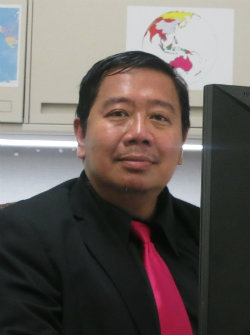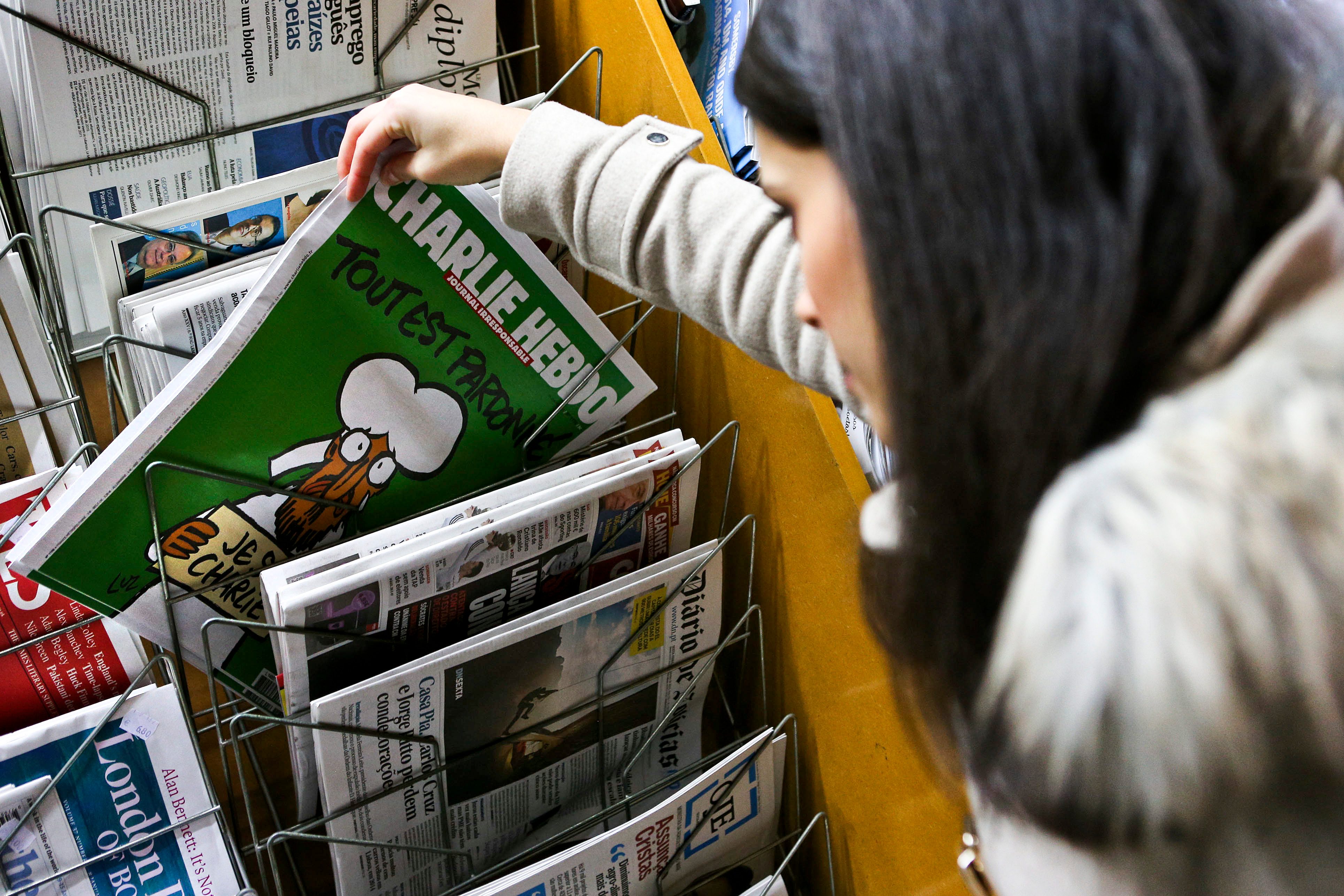SUMMARY
This is AI generated summarization, which may have errors. For context, always refer to the full article.
 The Charlie Hebdo attack is the second worst on media, after the Maguindanao massacre in 2009, where 32 journalists were among the 58 victims.
The Charlie Hebdo attack is the second worst on media, after the Maguindanao massacre in 2009, where 32 journalists were among the 58 victims.
Masked gunmen killed Charlie Hebdo journalists for ridiculing Islam, including the printing of “blasphemous” images of the prophet.
The Quran does not ban the drawing of the prophet’s image. Art historians point out that Muslims themselves depicted the prophet in many illustrated books in the early Islamic period. Later, hadiths banned such drawings for fear of idolatry.
Ultra-right Europeans waged their Islamophobic verbal and physical attacks on Muslim communities and mosques. Calling for a war on Islam, the Ultra-Right wing wanted to keep Europe free of Islam.
Racism and bigotry against Muslims and Islam are real and growing. Some Muslims in Asia and Africa have waged their anti-“blasphemy” protests.
Multiculturalists believe in political correctness, tolerating all views, especially of the minorities. They avoid asking sensitive questions, brushing aside comments about Ultra-Right-Wing Islamists as committing terrorist acts and asserting that 99.9% of Muslims are not terrorists. They would rather talk about unity in diversity, arguing that terrorists are not Muslims, even if some terrorists yell “Allahu Akbar” around the time they commit acts of terrorism, proclaim war on the “infidels,” and engage in suicide attacks. This begs the question, “Who decides who is Muslim or not?” Doesn’t the politics of identity point to self-identification?
People who ask questions are labeled bigots and racists, preventing conversations that need to take place. Multiculturalists point out that when Muslims commit terrorist acts, the entire religion is put to blame but the same thing does not happen with Christians.
Toleration, criticism

French comedian Dieudonné’s Facebook post of “Je me sens Charlie Coulibaly (I feel Charlie Coulibaly)” was seen as an apology to terrorism and was arrested. Multiculturalists cried double standard of freedom of speech. Multiculturalists see any criticism of Islam as xenophobic and racist, guilty of spreading hate and attacking the oppressed, marginalized, and criminalized people, using freedom of speech and expression as a cover.
Muslims who consider drawings of the prophet as offensive but understand the importance of freedom of expression in Western thought stand in solidarity with the #JeSuisCharlie slogan, stating that the prohibition of drawings applies to Muslim, not to Charlie Hebdo, and condemning the killings as much more atrocious than the drawings.
Secularists (or laïques), especially atheists, are opposed to religions, as they are vestiges of the obsolete feudal, slave-owning, and primitive social systems. Secularists uphold the belief according to which capitalist and socialist societies are rational and scientific, not superstitious and religious.
Religion should be a personal matter, for which reason secularists are opposed to religious intervention in state affairs.
Voltaire was resurrected in light of the Charlie Hebdo killings. The often misquoted citation, which is Evelyn B. Hall’s paraphrase, surfaces in social media, “I disapprove of what you say, but I will defend to the death your right to say it.” The quotation exemplifies Voltaire’s espousal of the freedom of speech and expression. Opposed to religious persecution, Voltaire championed the toleration of other religions.
However, Voltaire criticized the Abrahamic religions of Judaism, Christianity, and Islam, which thrive on superstition that relies on people’s naïveté. Hence, Voltaire called for the separation of church and state, espousing the freedom of religion and expression. That’s the Voltaire Contradiction.
Then comes Rousseau who was hated by Protestants and Catholics for his “heretical” deistic views that God is present in creation and there is no need for revelation and original sin. Rousseau advocated toleration of other religions.
Rousseau is famous for two quotations: “Man is born free, and everywhere he is in chains” and that by enforcing the “general will,” people are “forced to be free.”
Think of the French law prohibiting concealment of the face in public space. Rousseau advanced the radical democratic view that everything is under the direction of the general will, considering that the objective of civil society as established through the social contract is to guarantee the freedom of all. Some individual rights have to be curbed for the good of the whole society. Rousseau argued that by being part of the general will, laws are created, and we give up some freedoms in order to benefit and satisfy the best interest of the whole society. That is the Rousseau Contradiction: religious toleration and forcing people “to be free.”
People fall under the Right, Center, and Left ideological continuum. Most people of all faiths are peace-loving, but we cannot deny the fact that there are Christian, Jewish, Muslim, Hindu, and Buddhist terrorists.
Racists and bigots consider Islam as “evil,” thus giving rise to Islamophobia.
The religious will insist that their religion is correct.
Multiculturalists will continue to call for the respect of all faiths but must ask the hard questions.
Secularists, including atheists, will insist on the separation of religion and state, defending satire. Irreverence, which is used to question and challenge power, ideas, and values, are integral to the freedom of expression.
From Voltaire and Rousseau, we learn that toleration is compatible with criticism of religions. People who espouse the spirit of Voltaire’s and Rousseau’s philosophy will continue to live this contradiction.
Austrian philosopher Hans Köchler and Iran’s former president Mohammad Khatami called for a dialogue among civilizations. We need to acknowledge that problems exist and should be able to engage in real conversations and ask important questions. – Rappler.com
Rey Ty is a political observer, author, political theorist, comparativist, political risk and policy analyst, and lecturer. He has lived in Paris, France, where he studied French language at the University of Paris at the Sorbonne, for which reason he felt a certain closeness to what happened at the Charlie Hebdo. He received his doctorate from Northern Illinois University and Master’s degrees from the University of California at Berkeley and Northern Illinois University.
iSpeak is Rappler’s platform for sharing ideas, sparking discussions, and taking action! Share your iSpeak articles with us: move.ph@rappler.com.
Tell us what you think about this iSpeak article in the comments section below.
Add a comment
How does this make you feel?
There are no comments yet. Add your comment to start the conversation.